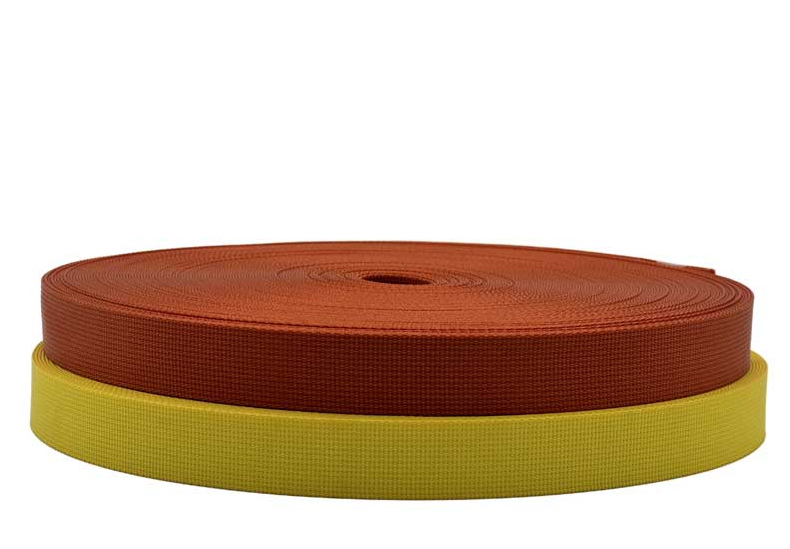
Webbing is integral to a wide variety of everyday and specialty products—everything from backpacks and belts to pet leashes, safety harnesses, and marine gear. Top on the list are nylon and polyester, which have earned repute for being durable. But while all these resemble one another at first glance, they behave differently from a performance standpoint, depending on the environment and the application. This is what you need to know when making the comparison between polyester and nylon webbing.
The nylon webbing is very strong with high tensile strength, flexibility, and a smooth handle. It’s commonly found in applications where toughness and resistance to dynamic loads (like the ones you’d find hanging off of) are important — think climbing harnesses, tactical gear, and heavy-duty straps.
In contrast, polyester webbing has excellent UV and water resistance, which is why it’s such a great option for outdoor and marine applications. However, the performance of polyester webbing will be significantly reduced when facing some occasions that require certain load capacity.
In terms of raw strength, nylon is usually rated with a higher tensile rating — which means it can support more weight before breaking.
The tensile strength of polyester webbing is a little less but is better at dimensional stability. It doesn’t stretch much, and if it is only used for tie-downs, it can still meet the requirements.
A main distinction lies in the way these materials manage water and sunlight. Nylon absorbs water and becomes heavy, dries relatively slowly, and prolonged exposure to water can cause mold if not properly maintained.
If you’re exposed to a lot of wet weather, polyester is the fabric of choice. It’s hydrophobic, dries quickly, and resists mold and mildew. Traditionally, polyester is also much more UV-resistant than nylon, but nylon treated with our special technology performs just as well.
Nylon webbing is generally softer and therefore more flexible, which means it is more comfortable to wear next to the skin – perfect for use as a belt, backpack strap, or pet collar. Although nylon webbing feels smoother to the touch, nylon will stretch more than polyester under load.
Generally, polyester is going to be more rigid than nylon, which can be useful in tethering applications where you need to limit movement. Polyester webbing will have less stretch than nylon webbing.

So, when considering polyester and nylon webbing, the best choice would be based on the kind of purpose for which you will be using the webbing. Nylon brings more strength and comfort for dynamic load-bearing applications and polyester gives better resistance to the environment and UV for prolonged outdoor using. Knowing these differences will help you decide which material is best for your equipment or project.